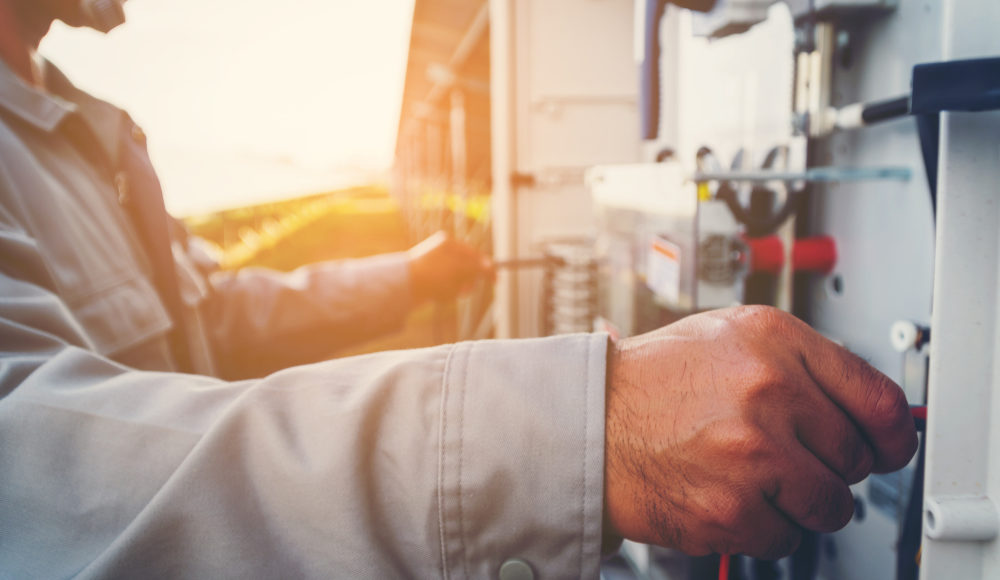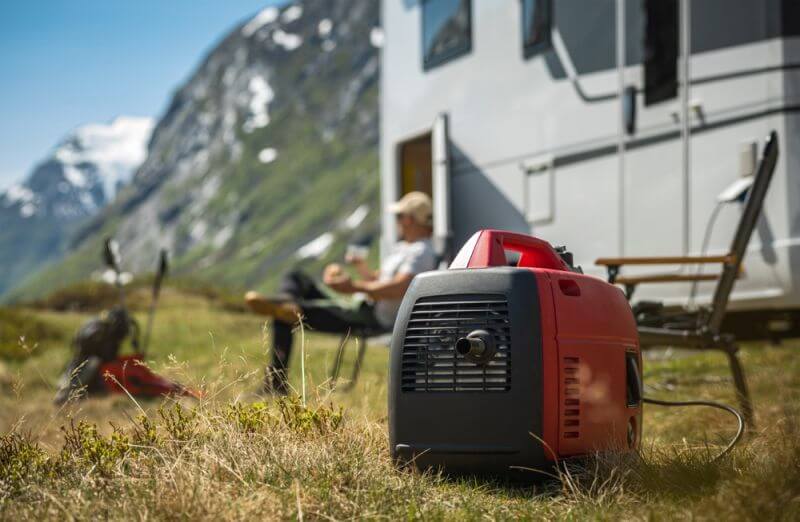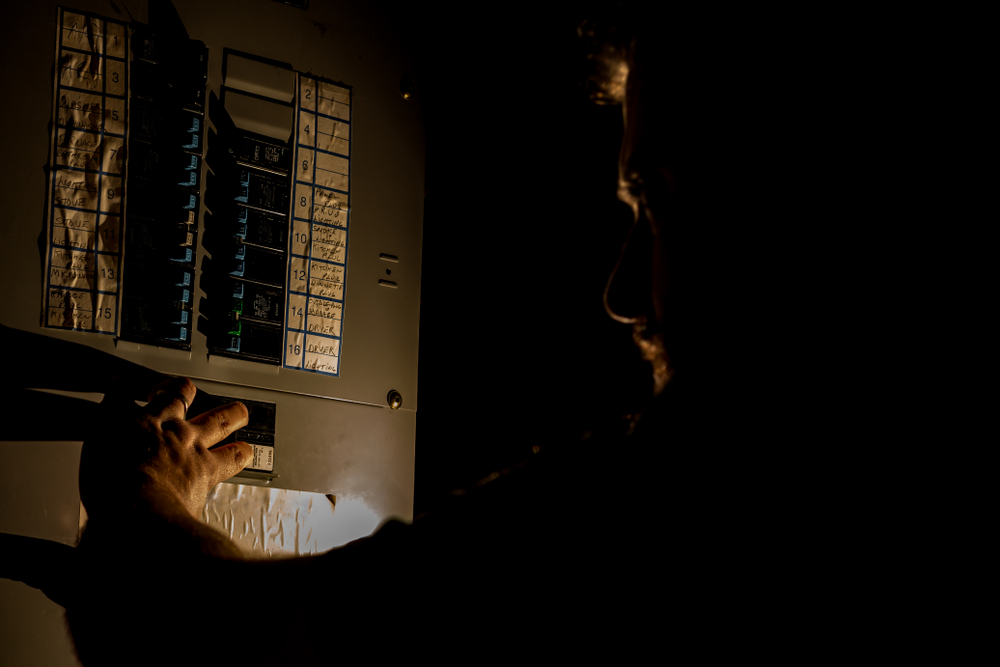Human nature is influencing our actions daily, but even so, it pales in comparison with the power of Mother Nature. The destructive power of nature is showcased with every earthquake, blizzard, flood, and other natural disaster hitting our nation.
Such power can be incredible to witness, and some may call it even awesome, but it leads to disastrous outcomes to our daily needs. Take electricity, for example.
Our world is run and governed by electricity, yet we are so fragile in protecting this resource and one of our most basic needs. A thunderstorm, a heatwave, and even a simple windstorm can lead to severe power outages that may last past those 24 hours, which some consider the norm when it comes to losing power due to Mother Nature’s fury.
However, if it lasts for days, the effects of a power outage can be devastating for some, especially if they’re not prepared.
For example, some folks I’ve known for a few years weren’t the type of people to prepare, but it all changed after they became the victim of a seven-day blackout. They suddenly began to see how dependent they were on electricity and how they became creatures of comfort, believing something like that would never happen to them.
They spent all their cash on basic supplies since their debit card was useless, and they had to ask their neighbors for help, and eventually took advantage of their AC to endure the harsh summer days. It was a humbling experience for them, and they consider it a useful learning lesson since they are now better prepared for whatever life may bring them.
After their unpleasant experience, I remember that they went out and bought a generator, and over the years, they purchased two more. Generators are tools that provide stability when the power grid goes down, and I consider them to be indispensable nowadays for the self-sufficient home.
So, seeing that generators are life-saving tools, I believe everyone should get the basic knowledge to buy and use them, but in this article, we will look at generators from the prepper’s point of view.
Types of generators
You can buy the generators in two basic formats, portable and standby. As you can imagine, the portable variant is designed to be moved from one location to another depending on your needs. For example, if your survival plan requires you to move from place to place to reach safety, having a portable generator that can be loaded into your track may pay off in the end.
As for the standby generators, these are permanent power generating solutions that require professional assistance to be installed, and you won’t be able to move the generator once it’s put in place. If you are the type of prepper that believes in hunkering down and holding the fort no matter what, you may want to go with this solution.
Standby generators are viable if you believe your house will still be standing after whatever disaster you are prepping for hits your area. However, some people believe that someone may come and steal their generator if they evacuate, but that would be hardly the case.
First of all, those who can steal such a generator need extensive knowledge of how they operate to remove the generator from your property safely. And second, moving a standby generator requires specific tools and adequate manpower. Depending on its size, you would need a crane or at least four people to carry a basic standby generator. So, as you can see, stealing is not easy as some folks believe, and it’s a time-consuming and risky operation.
An alternative would be to get both types of generators so that you can be sure both the survival plans (bugging out or hunkering down) are covered. This, of course, if you have the budget for it.
Powering the generator
After you figure out if you want your generator to be immovable or mobile, or perhaps both, you can move on to the next step and figure out what your needs are, more precisely, how the generators are powered. They can host different resources to generate power, such as gas, diesel, and natural gas, and you should be aware of their limitations.
For example, portable generators are powered by propane or gas, and some can use both fuel sources.
As preppers, we have to consider the following aspects when picking a generator:
- In general, gasoline is more expensive than propane. Also, making a gasoline cache is difficult, and you have to check its viability regularly to make sure you can still use it when you need it the most.
- Storing gasoline can be tricky since some local ordinances limit how much fuel you can keep. Even more, consider that the shelf-life of gasoline is roughly one year.
- Propane is the way to go since it’s indefinite in terms of fuel shelf-life.
- Propane generators have a higher failure rate than gas generators due to their fuel delivery system. If you want to use your generator extensively, you might want to consider getting a gas generator and stick with a propane one only as a backup solution. That’s how I’m doing it.
- Think about how you will procure fuel when the brown stuff hits the fan. If you are near civilized places, the chances of getting some fuel are pretty high. However, if you are in the wilderness and your bug-out location is in the middle of nowhere, your chances of getting fuel are slim to none.
In general, as preppers, we need to have long-term goals, and obtaining fuel will become a priority if you plan on using your generator during extended blackouts.
Before you plan for situations where you will have to scavenge or barter for fuel, take a good look at your living area and find out how the population dealt with shortages. It will provide you with a good perspective and will help you prepare for the future.
Wattage needs
The average Joe needs to figure out how generator wattage works, and this is a crucial factor when picking a generator. With a little bit of math, you can figure out what generator works best for you and your household’s needs.
All generators are sold by wattage, and the average American family buys an entry-level generator after experiencing a blackout. Such a generator can provide between 7 to 12 kilowatts (kW), and they will power your refrigerator, an oven, and two or three lighting circuits.
It goes without saying that if you need more power, you need to get something bigger. For example, a licensed professional will recommend a 48-kW generator to power the entire household.
To have an idea of what you should expect in terms of power needs, here are some examples with household items and their watts per hour requirements:
- Refrigerator: 700 to 1,200 watts
- Freezer: 500 to 1,200 watts
- Microwave: 600 to 1,200 watts
- Washing machine: 1,200 watts
- 10,000-BTU air conditioner: 1,500 watts
- Television: 300 watts
- Computer: 250 to 400 watts
As preppers, we can do without some of the appliances listed above, and I see only 3 or 4 items that are a must. However, many folks out there won’t live comfortably without all these appliances.
This puts things into perspective, and it’s all about what you can sacrifice when the power goes down. It should be common sense that the more items you need to power, the bigger the generator and the more fuel it will use.
A prepper should prioritize his needs, and the wants should be just an occasional indulgence. Calculate your wattage needs based on what becomes indispensable and not on what would be nice to have. Be practical and realistic about your needs.
Hazards
No matter where you are located and what you want to use the generator for, you must keep in mind certain hazards associated with generators, especially portable ones. Let’s look at the most important issue to consider when operating a generator.
- Shock and electrocution
Improper use of power and the electricity produced by generators create the same hazards as utility-supplied electricity. Those using a generator will often bypass safety devices built into their electrical system, and ignoring circuity breakers is dangerous. Here are some things to consider:
Never attach your generator to the electrical system of your home unless you have a transfer switch properly installed by a qualified electrician. There have been many cases in which generators attached directly to the electrical systems of homes, offices, and trailers have led to the energizing of wiring systems over great distances. Utility workers and other people in the area got electrocuted when power generators were installed improperly.
Plug the appliances directly into the generator and use only the cords or extension cords the manufacturer supplied. These should be grounded and can be easily recognized by their three prongs. It is also recommended to inspect the cords to ensure they are intact before using them and ensure they are rated in watts for the intended use.
Using ground fault circuit interrupters becomes a must if you use the generator in damp or wet locations. These are fast-acting circuit breakers designed to shut off electrical power when an electrical current is detected outside a normal path. The electrical equipment you are using should also be listed and approved for wet and damp conditions.
Even if you have a GFCI and extension cords with built-in GFCI, never use electrical equipment that has been submerged in water. Before being powered on, such equipment needs to be properly dried and evaluated by a professional.
All generators should be properly grounded, and you must check the instruction manual for proper grounding methods and make sure the connections are tight.
Never use a generator in rain or wet conditions. Make sure you keep your generator dry at all times and protect it with a canopy if needed. It should be common sense by now that you should never use or manipulate electrical components if you are standing or water or if you get wet.
- Carbon monoxide poisoning
Carbon monoxide is a silent killer, and it claims many lives each year. This colorless, odorless, and toxic gas builds up if the generator is not properly ventilated.
You should never use a generator indoors or in an enclosed space because Co can still build up even if you open a window or door.
Using a generator indoors requires special preparations, and you need to have 3 to 4 feet of clear space on all sides of the generator, including above it. This is recommended to make sure the generator is adequately ventilated. Even more, you need to have an air ventilation system that pulls out the air from the room and replaces it with fresh air constantly.
CO poisoning becomes a significant hazard to preppers since most of them are looking for ways to make their generator as quiet as possible. They improvise all sorts of locations in which to run the generator. Usually, such places are underground, and you can see why running a generator under the radar or inconspicuously is dangerous.
Some people have died from CO poisoning, even if their generator was running outside. It happened because they placed the generator near vents, doors, or windows and left it running for a while. The bad placement allowed for CO to enter the occupied spaces, and the build-up claimed the lives of the occupants.
Learn about carbon monoxide poisoning since recognizing its symptoms can save lives. If you are using a generator and you or those in your vicinity show signs of nausea, dizziness, headaches, and tiredness, get to fresh air immediately and call for medical help.
You should not enter an area where you suspect CO is building up, and you should let trained and adequately equipped personnel determine if the site is safe.
Fire hazards
Preppers need to pay attention to fire hazards since most of them plan to use the generator for their bug-out locations, where the chances of starting a wildfire are usually high.
The first thing folks need to understand is that generators become hot when running, and they can remain hot for a while after you’ve stopped using them. Spilling gasoline or kerosene on hot engine parts can spell disaster. Also, consider placing your generator in a place where it’s protected from falling vegetation.
Every time I refuel my generator, I shut it down, giving it enough time to cool. It baffles me that some folks think it’s ok to refill a running generator.
Handling fuel for your generator can also be risky, especially if you decide to carry some with you when evacuating. First of all, make sure you transport the fuel in approved containers designed and tested for their contents. And second, make sure the place where you store the fuel is vented, even if you store it temporarily in the back of your truck.
If you store fuel in a remote location, make sure the area is clean of flammable debris and that there is no heat or flame-producing sources nearby. The vapors escaping from containers or the vapors of spilled fuel can travel over long distances and, in some cases, can be easily ignited.
Final thought
Besides everything we listed in this article, you have to keep in mind that generators are noisy and should be placed far from living or gathering places. It is also recommended to wear hearing protection if you are working near a generator.
If you decide to temper with your generation and make all sorts of improvisation to make it quieter, seek professional help before doing so. Placing your generator in a hole in the ground and letting it run for a while may reduce the noise it makes, but it’s not a safe approach.
Safety should be your number one concern, and you need to become more informed before getting a generator to cover all your needs. Preppers’ needs may be different from the average Joe’s needs, and you have to make sure your actions aren’t putting you at risk or getting you in trouble.











Skip | January 6, 2022
|
You neglected to mention portable solar generators. I purchased one of these in addition to my three portable gasoline generators. The solar generators have several advantages over internal combustion engine generators: 1). They are silent. 2). They do not require any fuel. They charge from portable solar panels which fold in half and can be easily carried by the built-in suitcase-type handle, 3). They do not produce carbon monoxide or any other kind of fumes, so they are safe to use indoors and in enclosed spaces. 4). You can draw power from them while they are charging from the solar panels. This gives you a portable solar generating station that you can take with you anywhere in the event you have to bug out. As long as you aren’t drawing more power from the generator than the solar panels are putting into it, the unit will continue to charge while supplying you with power. For example: If your solar panels are supplying 500 watts of power to the generator and you are using 200 watts of power, the remaining 300 watts of power will go toward charging the generator’s battery. In general, solar generators are about double the price of a comparable gasoline or propane-powered generator. My solar generator supplies 1800 watts of power. It cost me about the same as a Honda gas generator that supplies 3000 watts of power. But, considering all of the advantages the solar generator has over a gasoline generator, it’s dirt cheap in comparison. No fuel or motor oil . . . silent . . . no carbon monoxide or other fumes . . . can be used indoors . . . no mechanical maintenance required such as overhauls, or fuel and air filters, etc. All that said, you still need a gasoline generator, or two, for when the sun isn’t shining. Also, if your solar generator runs out of power during the night, you can crank up a gas generator. One other comment . . . The general wisdom says that gasoline lasts only for a year. Not true. I have used gasoline that was stored without shelf-life extender additives for over two years and it worked just fine. I have been doing this for years. So, don’t throw away “old” gasoline just because it’s been sitting around for a while. Try using it, first. You may be surprised to find that it’s perfectly good.
William Halford | January 6, 2022
|
I’m trying to figure out where you get “a licensed professional will recommend a 48-kW generator to power the entire household” from. Because a typical house (average sized 3 bedroom, 2 bath) isn’t going to need more than 10 or 12kw, maybe 15kw in a place where it’s significantly hotter or colder than normal and the house isn’t insulated well enough, and/or maybe has more people in it than a typical house would.
And you forgot to mention the difference between SURGE watts and RUNNING watts. Manufacturers or retailers often advertise the SURGE watts to make the generator look like it can power more than it really can, when it’s the RUNNING watts that a buyer needs to pay closer attention to. I’ve had a backup generator that was rated at 5500 running watts and 8500 surge watts. While having a surge watts that much highter than the running watts is good for a surge like when inductive loads like a well pump starts, if the running watts isn’t high enough, it won’t be enough to run enough of the home’s electrical loads in some situations.
Jason | January 7, 2022
|
Oh the irony. My electrician friend made me an adapter cable to plug my generator into my 220 dryer socket to save me some $.
It can be done safely IF you know what you’re doing.
Not recommended for those with no electrical experience, or if friends or guests will use it.
Joe Chartreuse | January 7, 2022
|
I am an EE, ET, and AE- all electronics degrees. The wattage requirements shown above in terms of generator outputs are WAY off base. To clarify,: A 48kw generator was mentioned. This is 48 THOUSAND watts , To convert to amps, divide watts by volts , in this case 110 vac, (though for a safety margin when calculating need use 100 vac) A 48kw generater would put out 436 amps. No private residence is even wired to carry that much current. Most have a 100 amp service, some 150. That’s for a whole house including central air, a hot tub, and pool with filter.
That being said, If one turns off all circuit breakers but those to be used ( This is because anything plugged in draws power even when off), One- and that would include me. I have done it- you can run a refr.igerator, gas/ hot water or steam furnace, portable 18″ flat screen TV ( on over-the-air antennae. Cable will probably be out anyway), and some lights (LLED bulbs draw 9 – 14 watts) from a ONE KW ( 1000 w) generator. How can you run the fridge and a furnace? Because the fridge only pops on when the temp drops below setting, and only in a spurt. The furnace uses one quick spark to ignite the flame.. Won’t run even a window A/c though. Fans, yes.
The smaller the generator the less fuel used. A 1000w generator will run 9 hours at half load on ONE gallon of gass. BTW- The average standby or large portables are 4 POINT 8 kw – 7 POINT 5 kw, though some can be larger of course..